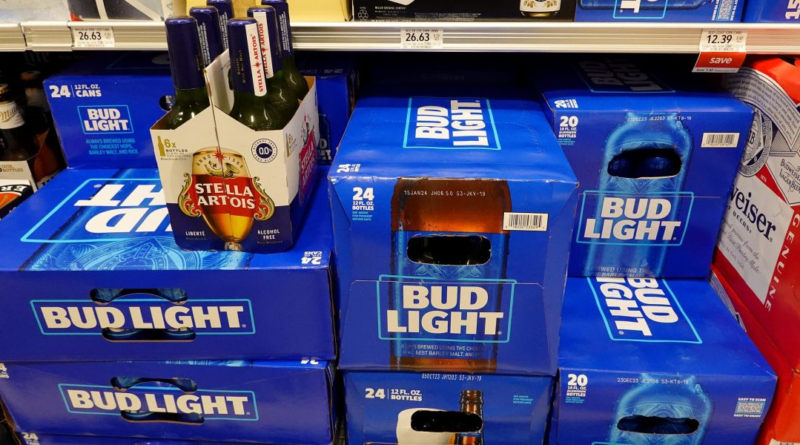Bud Light parent AB InBev sees sales plunge $400 million in the U.S. following boycott
The Bud Light consumer boycott that followed the AB InBev beer brand’s promotion with a trans influencer now has a price tag—and it’s a big one.
The Belgian brewer saw its U.S. revenue drop 10.5% and sales to American retailers fall 14% in the April to June quarter owing to a plunge in sales of Bud Light. That translates into a year-over-year revenue drop of almost $400 million in North America. While North America also includes Canada, sales rose there, suggesting that the fall in revenue can be attributed to AB InBev’s boycotting American consumers alone.
For years, Bud Light has reigned supreme in the U.S. beer market. But this changed quickly after consumers boycotted the brand in April, following an ad partnership with transgender TikTok icon Dylan Mulvaney. Backlash from the anti-trans community increased on social media, and the company put two executives who oversaw the Mulvaney marketing campaign on a leave of absence. AB InBev also distanced itself from the campaign in May, saying that a single post is not a campaign.
But by the time the company reacted to the backlash, it had already begun losing consumers, dethroning it from the status of #1 beer seller in the U.S.
During the earnings call Thursday, AB InBev, which also makes Stella Artois and Corona beers, addressed the boycott by referring to it as the “Bud Light situation.”
“In the U.S., we are listening and actively engaging with our consumers,” CEO Michael Doukeris said. “They want to enjoy their beer without a debate, they want us to focus and concentrate on platforms that all consumers love and this is what we are doing.”
The world’s largest brewer plans to continue investing in sales and marketing efforts that bolster its brand power, bearing in mind what it learnt from its recent ad promotion debacle.
AB InBev did not immediately return Fortune’s request for comment.
Beer sales elsewhere
Despite the poor performance in America, the company’s performance in other parts of the world have helped it increase total revenue for the second quarter by 7.2%. AB InBev’s drink prices are up 9% on average, which consumers have absorbed and helped grow the brewer’s earnings. It beat profit expectations of 0.4% by raking in a 5% increase in profits for this quarter compared to the same time last year.
And even though volumes of AB InBev’s beer and non-beer sales continue to struggle, the company decided to stick to its full-year outlook, with markets like China helping it offset the lost business in the U.S.
Other major players in the beer industry are also reeling from the impact of surging prices, such as Heineken. The Dutch beer brand, which ranks second in the world by beer sales, hiked prices in response to inflation but consumers favored cheaper brands. Heineken’s profits dipped as a result in the second quarter of 2023.
But AB InBev’s controversy has created some winners—like American rival Molson Coors which has now upped its full-year guidance.
“We didn’t plan on our largest competitor’s largest brand declining volume by nearly 30% in the quarter,” the company’s CEO Gavin Hattersley told investors Tuesday.

